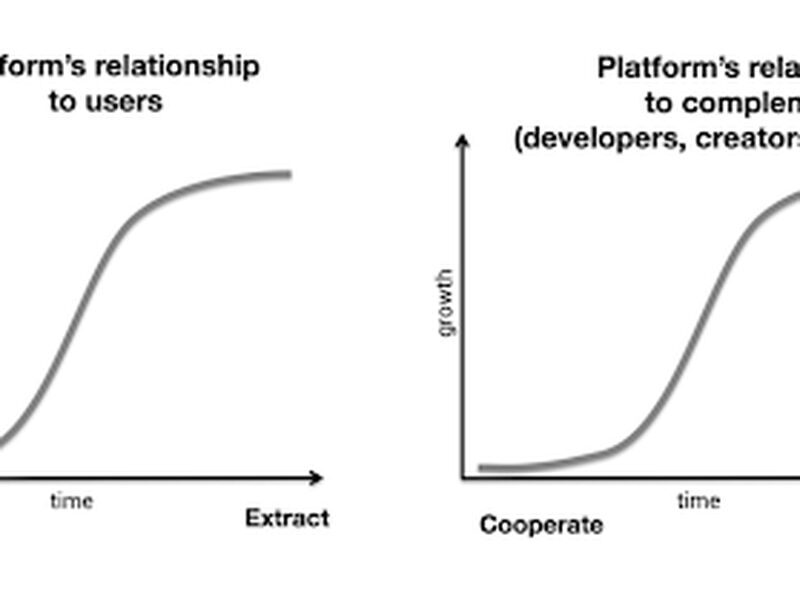“Web 3.0 is about creating a truly decentralized web, where individuals are in control of their own data and have true ownership and sovereignty over their online identities.” – Balaji Srinivasan
Web 2 deserves a lot of credit. It gave us interactive platforms where non-celebrities could build audiences of millions with almost no friction. It allowed us to circumvent the gatekeepers of culture: the networks that controlled information throughout the twentieth century. But the same centralization problems that plagued the pre-Facebook attention economy have re-emerged over the past decade as a few dominant platforms capture an even greater share of global attention than the mega-corps of the 20th century.
Felix Xu is the founder of ARPA and Bella Protocol.
In Andreessen Horowitz partner Chris Dixon’s blog “Why Decentralization Matters,” he shows how the S-curve modeling the extractive relationship between tech platforms and users was flattening, and how more and more was getting stripped from users over time. And it’s not just users; the same goes for all businesses, developers and creators that rely on these platforms.

Most of their efforts over the past five years have focused on extraction, running more ads to increase profit with only meager efforts to redistribute the nearly $400 billion in net income they earned since 2018 to creators.
Of course, Big Tech founders deserve a little credit. Alphabet’s YouTube and Web 2 newcomer TikTok have made being a “creator” or “influencer” a viable career path for tens of thousands of people. YouTube, which accounts for around 11% of Google’s total revenue, has a generous revenue share of up to 45% for large creators. TikTok’s revenue share is far lower, but many creators can earn a decent living selling ads on their pages that they negotiate on their own.
See also: Tech’s Money Woes: Beginning of the End for Web2? | Opinion
The real problem with Web 2 is not their limited revenue-sharing, it’s the fact that creators are subject to the whims of platforms whose interests are increasingly divergent from their own. The ever-present risk of deplatforming and obscure algorithms determines the fate of every creator. Of course, many other smaller creators have been quietly deplatformed without redress and entire sites,…
Click Here to Read the Full Original Article at Cryptocurrencies Feed…























